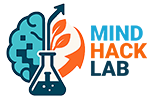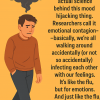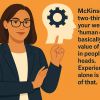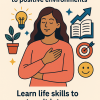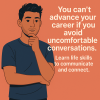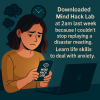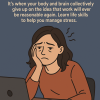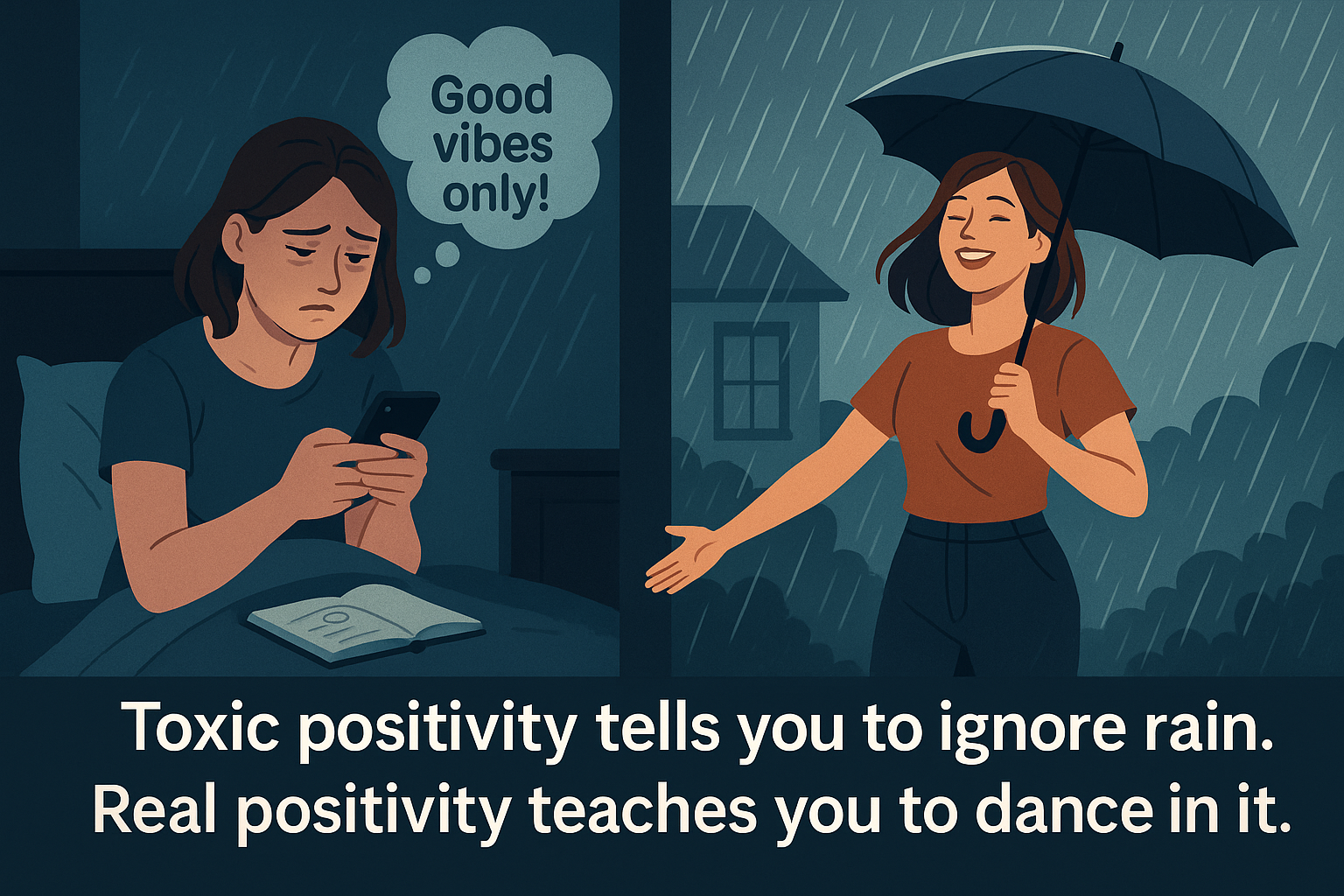
The Night I Almost Threw My Laptop at a Motivational Poster
4:47 PM on a Thursday. Jessica from HR is explaining how we all need to "radiate positive energy" while I'm sitting there on my fourth coffee, haven't slept properly in weeks, and my biggest win that day was not crying in the parking garage.
"Just choose happiness!" she chirped, holding up a poster with a sunset and the word BELIEVE in Comic Sans.
I wanted to believe alright. Believe I could teleport out of that conference room.
That's when it hit me—this whole fake positivity thing wasn't just annoying. It was actively making everything worse. Because while I'm pretending to be a walking ray of sunshine, my Emotional Mastery & Self-Forgiveness pillar is cracking under the weight of all that pretending.
Demented Mannequins, All of Us
Here's what kills me about the whole "good vibes only" workplace culture: it turns us all into demented mannequins. Your boss dumps three projects on you at 4:47 PM? Smile! Coworker steals your idea in the all-hands? Stay positive! The printer jams for the 97th time? You're blessed to have a printer!
I tried it. Really tried. Said "Happy Monday!" with enthusiasm I didn't feel. Posted motivational quotes in Slack (still cringe about that). Smiled through meetings where I wanted to flip tables.
Nothing happened. Except now I was exhausted AND fake. Like wearing a mask made of concrete while running a marathon.
That Thing I Do in the Bathroom Now
Remember that meeting with Jessica? While she was talking about radiating joy or whatever, I discovered something that actually worked. Not positive thinking—just a reality check.
When everything feels like it's on fire and you're about to send that email you'll regret:
- Step away. Bathroom break, water refill, stare at the parking lot—whatever.
- Name three things that are actually true right now. Not what might happen, not what Karen might think. Just facts. Like: "I have a deadline. I'm tired. The coffee is cold."
- Pick ONE thing I can control in the next hour.
No apps. No breathing exercises that make coworkers think you're having a breakdown. Just a reset that reminds my brain not everything is an emergency.
Started calling it emotional granularity—getting specific about what's actually happening in my head. Am I angry? Disappointed? Anxious? Usually all three, but knowing that helps more than any motivational poster.
Remember When I Forgot How to Speak?
Everyone talks about resilience like it's about becoming bulletproof. But I learned what it actually means after completely blanking during a presentation to the C-suite. Not forgot-a-word blanking. Full-on, mouth-open, no-words-coming-out blanking.
Old me would've spiraled for weeks. New me? Still spiraled, but for like two days. Progress.
The difference was learning actual tools from the Confidence & Calm Under Pressure module. The If-Then Meeting Plan saved me—basically pre-planning what to do when your brain decides to take a vacation mid-sentence.
Resilience isn't about not feeling things. It's about bouncing back when you do. Each awkward meeting, each missed deadline, each time you recover (even badly), you're building that muscle.
Three Things I Wish Someone Had Told Me Earlier
1. Setting boundaries without sounding like an asshole
"No" is a complete sentence, but sometimes you need more words at work. My go-to: "I can do that, but something else will need to move. What should I deprioritize?"
Watch how fast people reconsider whether that "urgent" request is actually urgent.
2. Being human at work (but not TOO human)
When I finally admitted I was struggling with constant video calls, turns out everyone else was too. We went camera-optional for internal meetings. Productivity went up. Who knew not staring at your own face for 6 hours helped morale?
But there's a line. You can say "rough morning" without explaining your entire therapy session, you know?
3. Good enough is actually good enough
That report you've revised 47 times? Send it.
I used to spend 20 minutes on every email. Now? Nobody cares about semicolon placement, Sharon.
2 AM Google Searches and Other Low Points
I was literally googling "how to not cry at work" at 2 AM when I found Mind Hack Lab. Skeptical about the "30 minutes" thing—sounded like more corporate wellness BS.
But it wasn't about positive thinking or manifesting success. It was actual tools. Like that chest-pressure technique that stops panic spirals. Or pattern recognition that helped me realize I only freak out when Brad from sales is in meetings (still investigating the Brad thing).
The 2-Minute Reframe became my secret weapon. Not forcing positivity—just shifting perspective enough to function.
Gallup says we're losing $8.8 trillion globally to disengagement and burnout. That's like... bigger than Germany's entire economy. And we're trying to fix it with Comic Sans posters.
So Here's the Thing
Real positivity isn't pretending everything's fine. It's having tools for when it's not. It's saying "this sucks" while finding a way forward. It's supporting each other through actual work life, not the LinkedIn version.
Next time someone tells you to "stay positive," remember: you don't need fake sunshine. You need real tools for when your boss is unreasonable, deadlines are impossible, and the coffee machine breaks on Monday.
Because work is hard enough without pretending it's not. The best positivity acknowledges the struggle and gives you ways to deal.
And if all else fails? There's always the bathroom cry break. Sometimes that's a life skill too.
